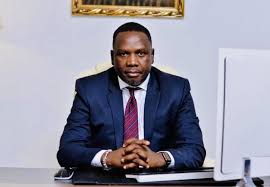
Samuel Omang
Daniel Bwala, Special Adviser to President Bola Tinubu on Policy Communication, has retracted his controversial claim that Lagos is a “no-man’s land,” clarifying that the state is historically and constitutionally the land of the Yoruba people.
Bwala sparked outrage on Wednesday after describing Lagos as a “no-man’s land” and “the pride of Nigeria’s economy” during an appearance on Arise Television’s Daybreak programme. His comments drew sharp criticism, particularly from Yoruba groups who accused him of attempting to distort the cultural identity of the state.
In a statement posted on his official X handle, Bwala insisted that his remarks were misinterpreted and that Lagos’s Yoruba heritage was never in doubt.
“Culturally, historically, and constitutionally, Lagos belongs to the Yoruba people, and that has never been in contention,” he said. “The unique identity of Lagos as a Yoruba homeland is settled and beyond dispute.”
Bwala, however, stressed that Lagos occupies a special place in Nigeria’s political and economic life, likening it to global cities such as New York, London, and Paris. According to him, while Lagos remains Yoruba land, its cosmopolitan character makes it the heartbeat of Nigeria’s commerce and development.
“My argument was for massive investments in infrastructure to sustain the economic and social responsibilities Lagos has shouldered on behalf of Nigeria,” he explained. “Such support is not because Lagos is ‘no-man’s land,’ but because it is the heartbeat of the nation’s development.”
During his earlier television appearance, Bwala had argued that the concentration of federal projects in Lagos was justified, dismissing claims of favouritism. Citing the state’s strategic role, he maintained that Lagos’s cosmopolitan nature made it a national hub.
“The richest man in Africa is a northerner, but his business is in Lagos,” he said. “Almost every rich Nigerian has a business undertaking in Lagos. Lagos is the hub of Nigeria. Lagos is the pride of the country.”
Despite his clarification, political observers note that Bwala’s initial remark may linger in public discourse, given the sensitivity around Lagos’s cultural identity and its place in Nigeria’s federal politics.
